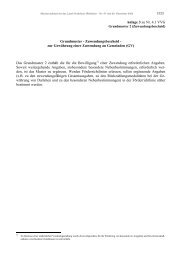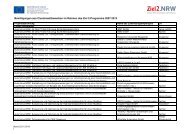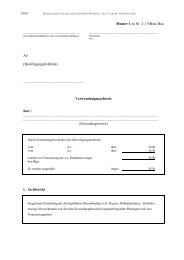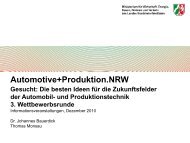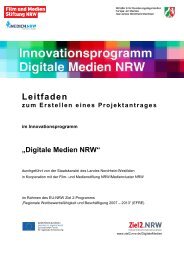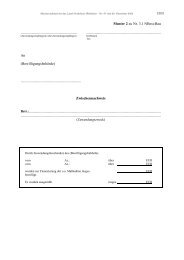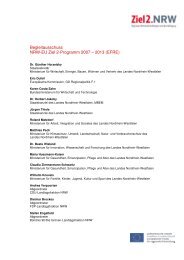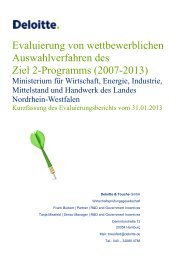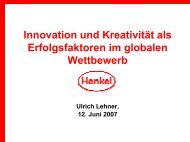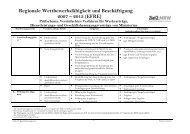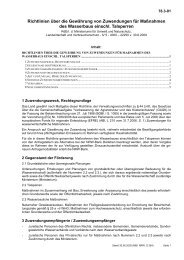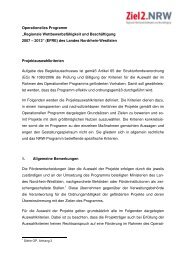Synthesis Report - European Commission - Europa
Synthesis Report - European Commission - Europa
Synthesis Report - European Commission - Europa
You also want an ePaper? Increase the reach of your titles
YUMPU automatically turns print PDFs into web optimized ePapers that Google loves.
<strong>Synthesis</strong> <strong>Report</strong> Ex-post Evaluation of the ERDF 2000-2006<br />
‘promot(ing) economic and social progress and a high level of employment and to achieve<br />
balanced and sustainable development, in particular through …. the strengthening of economic<br />
and social cohesion…’ 3<br />
Although territorial cohesion was added explicitly to economic and social cohesion only<br />
subsequently, in practice, it is implicit in the aim of ‘balanced and sustainable development’, so<br />
that policy objectives were much the same in the period being examined here as now. This is<br />
evident from the form which cohesion policy took in the various parts of the EU in the period.<br />
These multiple goals complicate the evaluation. It means that the performance of the policy<br />
cannot be judged simply in terms of the economic convergence of the regions assisted towards<br />
the EU average. It is all the more so since the relative weight attached to the objectives differed<br />
across regions reflecting their needs and priorities. Moreover, the relative weight concerned was<br />
rarely spelled out in any detail in programming documents or policy statements, which further<br />
adds to the difficulties of the evaluation.<br />
THE APPROACH ADOPTED<br />
Ex post evaluations of previous programming periods have attempted to provide a comprehensive<br />
coverage of the programmes supported by the ERDF in all of the regions in each of the EU<br />
Member States. Such an approach had limited success, largely because of the sheer number of<br />
programmes involved. This made it impossible to go into the detail necessary to properly assess<br />
the results and effects of all of them within a reasonable time-frame and with a reasonable<br />
amount of resources. Accordingly, the reports produced tended to be overly general and<br />
superficial in their analysis of the performance of policy over the period in question, failing to<br />
provide firm, empirically supported conclusions regarding its achievements and deficiencies. As<br />
such, they were limited in the advice and guidance they could offer for the formulation and<br />
implementation of cohesion policy in the future.<br />
In response to these failings and the evident difficulty of assessing all 230 or so programmes in<br />
25 Member States comprehensively without a massive expansion in the resources devoted to the<br />
task and the time taken, the present evaluation instead adopted a more selective approach. This<br />
was to divide the evaluation into 14 Work Packages which examined separate issues of policy<br />
relevance and which between them covered most of the expenditure co-financed by the ERDF<br />
(details of these Work Packages and of those responsible for them are set out at the beginning of<br />
this report). In particular, three Work Packages covered policy areas which absorbed the bulk of<br />
funding:<br />
• enterprise and innovation<br />
• transport<br />
• the environment<br />
Broadly defined to include support for tourism as part of enterprise support and the physical as<br />
well as the natural environment as part of the environment, these together accounted for around<br />
85% of total ERDF funding in the programming period.<br />
A number of cross-cutting issues were also examined:<br />
• gender equality, which was included in the guidelines to the Structural Funds as a<br />
horizontal priority,<br />
3 Treaty of Amsterdam, Article B, 1997.<br />
8



